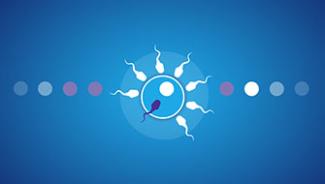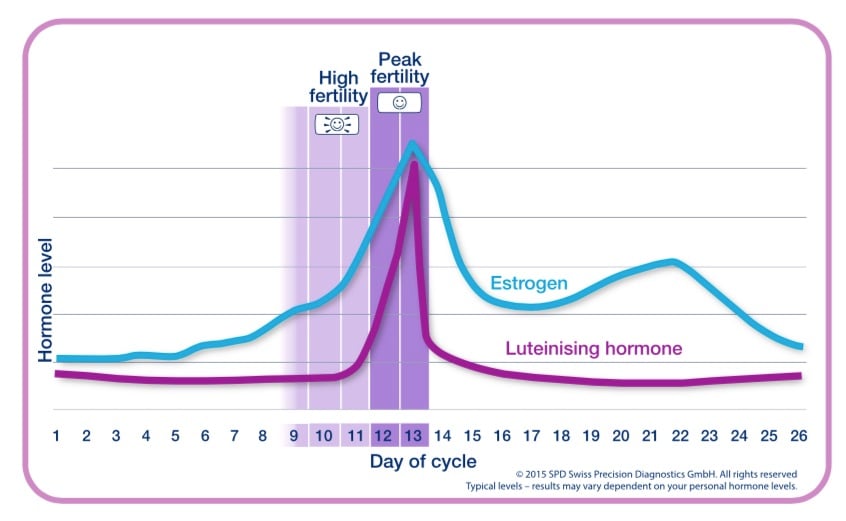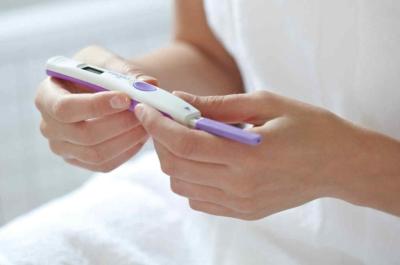
There are only a few days during each menstrual cycle when you can become pregnant – the day of ovulation and the days leading up to it. As many as one in two couples may be trying to conceive at the wrong time, because they don’t know when these most fertile days are1.
- 1. Johnson SR., et al. Hum. Repro. (2011) 26: i236.
- 2. Tiplady S., et al. Human Reproduction (2013) 28(1): 138-151. 210 women. Not statistically significant for conception rates.
- 3. Zinaman M., et al. Current Medical Research and Opinion. (2012) 28: 1–6.
- 4. Creinin MD., et al. Contraception (2004) 70:289-92.
- 5. 1. Ellis JE., et al. Human Reproduction (2011) 26: i76

Get pregnant naturally
Ovulation tests are accurate and simple to use.





